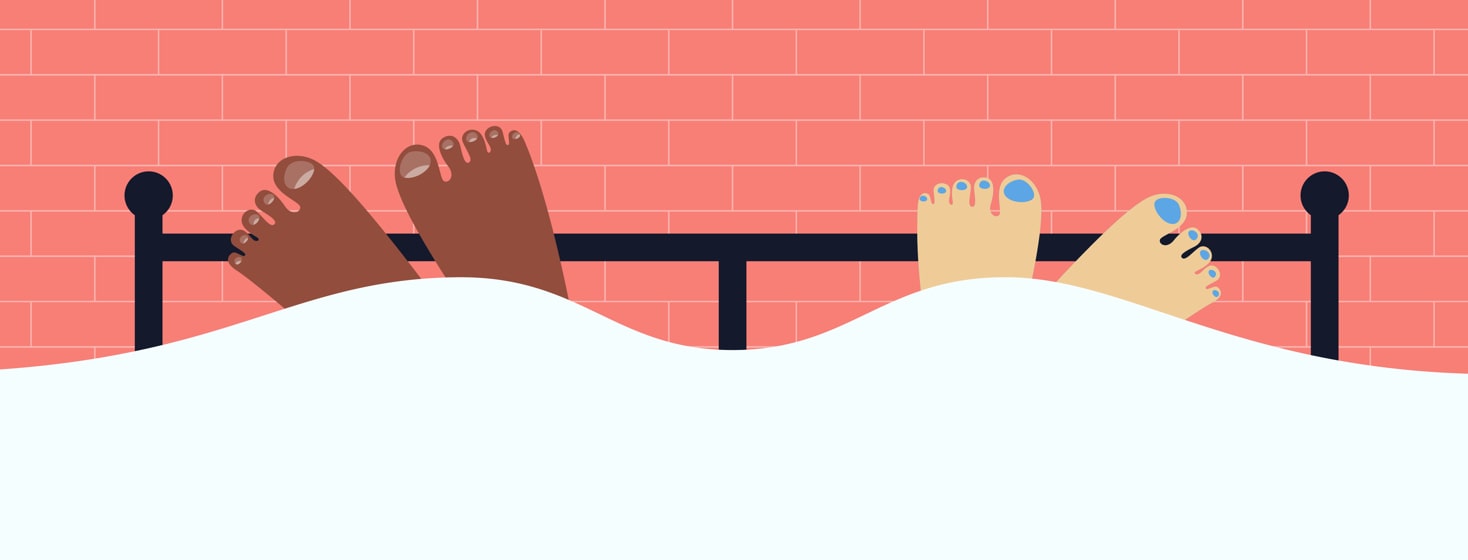The Challenges of Invisible Illnesses and Intimacy
Sickle cell disease (SCD) can affect sex and intimacy for both men and women. Pain and other physical complications can impact the desire or ability to have sex. Stress and other mental and emotional issues can also affect sexual health.
Talk to your doctor if you are having problems with sex or intimacy. They may be able to help improve your sexual experiences by adjusting treatments. They can also provide advice on how to maintain a safe and healthy sex life.
What is sexual dysfunction?
Complications of SCD can create physical and mental barriers to sex. These can sometimes prevent you from finding satisfaction from sexual activity. This is called sexual dysfunction. Common causes of sexual dysfunction include:1
- Lack of sexual desire or interest
- Inability to become physically aroused even if you are interested
- Problems having an orgasm
- Pain during sex
For men, difficulty maintaining an erection or ejaculating are common causes of sexual dysfunction. For women, an inability to achieve orgasm can occur because of vaginal dryness or problems with relaxing the vaginal muscles. Men and women can also both have pain during sex or lack of interest in sex.1
How can sickle cell disease cause sexual dysfunction?
Men and women both have complications of SCD that can lead to sexual dysfunction. Women who have frequent pain crises or chronic pain are more likely to have pain during sex. Also, opioid pain medicines may cause pain during sex because of altered hormone levels.2,3
Many men with SCD experience a complication called priapism. This is a painful and unwanted prolonged erection. Episodes of priapism can be triggered by sexual activity. Repeated episodes can cause permanent damage and erectile dysfunction. This is an inability to maintain an erection at all.4,5
People with SCD are also more likely to have mental causes for sexual dysfunction. For example, stress, anxiety, and depression can all affect sexual desire and performance.1,6
These barriers often affect attitudes about sex. People with SCD report several limitations related to sexual activity, including:4
- Lack of spontaneity because of the need to plan sexual activity around the disease
- Limits to available partners
- Limits to which sexual positions are possible because of pain
- Lack of enjoyment because they are distracted monitoring themselves and partners during sex
- Feeling a lack of control over sexual health
How can I have a safe and healthy sex life?
By taking certain precautions, people with SCD can have safe and healthy sex. Talk to your doctor about safe sex techniques, and encourage your child with SCD to ask you and your doctor questions about sex. Here are some tips to maintain a healthy sex life:
Use normal birth control methods
Women with SCD can usually use normal birth control pills. Your doctor may advise against using pills that have estrogen and progesterone hormones because they increase the risk of blood clots. Ask your doctor to recommend the best birth control for you.2
Men with SCD can also use normal contraceptive techniques, especially condoms. This is also important to prevent sexually transmitted infections. If you are taking hydroxyurea, you or your partner should use a condom to prevent exposure to the drug in bodily fluids.
See a doctor when problems keep happening
If sexual problems keep happening due to a physical reason, talk to your doctor. They can perform tests to find out what is wrong. They can then suggest possible treatments. For example, they can suggest ways to prevent and manage episodes of priapism at home. They can also adjust your SCD treatments to help reduce complications that affect sex.1
Communicate early and often with your partner
Talk to your partner about your sexual health. This can help them understand how SCD affects you and together you can improve intimacy. Some important things to discuss include:
- How physical and mental complications of SCD affect your desire or ability to have sex
- How sex can trigger pain episodes or other complications of SCD
- How they can be helpful and supportive
Talk to a therapist or counselor
Sexual dysfunction is often related to the mental aspects of SCD. It is never your fault. A therapist can help you cope with stress and anxiety. They can also help you come up with strategies to prepare for future challenges. Consider bringing your partner to your sessions to improve communication and intimacy.6
Educate yourself as much as possible
Learn as much as you can about complications of SCD and sexual health. Ask your doctor for resources or join support groups where these topics are discussed. Unfortunately, there is not enough education for young people with SCD about sexual health or general information about sexual health in SCD.7

Join the conversation